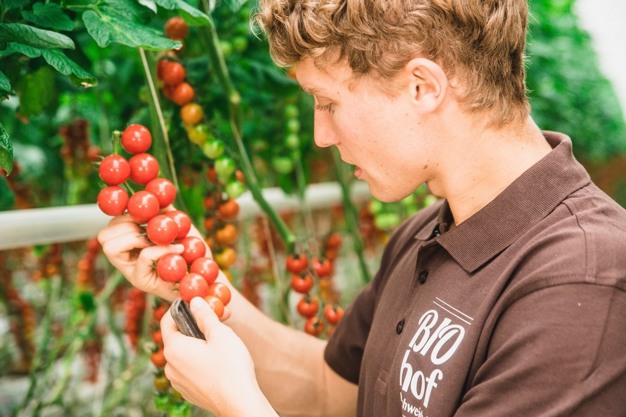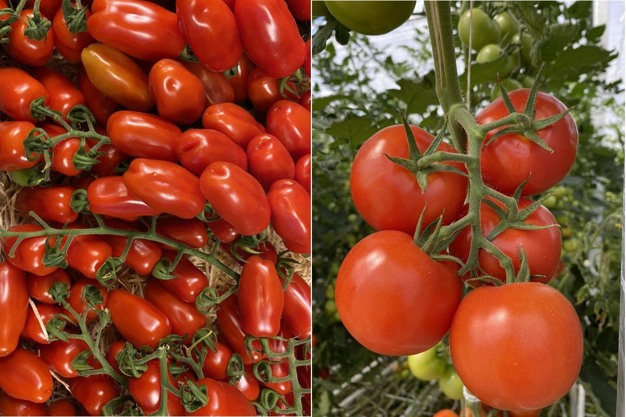The last regionally produced organic tomatoes in Germany are not harvested until November. The Bio Fruchtgemüse Produzenten e.V. (en: Association of Organic Fruit Vegetable Producers) reports massive challenges for the 2024 season, which its members were and are facing due to weather conditions, disease pressure and cost increases. With great effort, it was possible to meet the demand from specialist trade, food retail and discount stores with consistently good quality and continuity.
The weather during the last organic tomato season was characterized by a lot of rain and strong fluctuations in light and temperature. The reduced sunlight had a direct negative impact on the expected yield, while high humidity and low temperatures provoked fungal infections. At the same time, many farms were in the process of converting to Jordan virus-resistant varieties, which caused additional uncertainties in crop management.
 Ripeness control at the Kirchweihdach organic farm
Ripeness control at the Kirchweihdach organic farm
"Since we do not use chemical or synthetic pesticides in organic farming, the only thing we can use to control fungi is heating," explains Rudolf Dworschak, chairman of Bio.Fru.Pro. "In addition to labor costs, energy costs have the greatest influence on the calculation. Both have increased disproportionately in recent years." To ensure that the carbon footprint does not increase unnecessarily in wet years, the members have committed to using only renewable forms of heating.

Despite the major challenges and below-average yields in some cases, the market has been continuously supplied. There were only brief bottlenecks in the organic cocktail tomato segment at the height of summer. "Our top priority is to supply customers with the agreed quality and quantity throughout the entire season from April to November," emphasizes Michael Schudde, Bio.Fru.Pro's Managing Director for the South. "We have the professionalism of our members to thank for our success in achieving this once again. We are able to quickly balance out short-term fluctuations in demand through our network of marketing channels and our companies are prepared for medium to long-term market shifts, such as the shift away from traditional organic retailers towards discounters."
Photo credit: Bio.Fru.Pro
For more information:
Michael Schudde
Bio.Fru.Pro
0176 60030043
[email protected]
www.biofrupro.de
